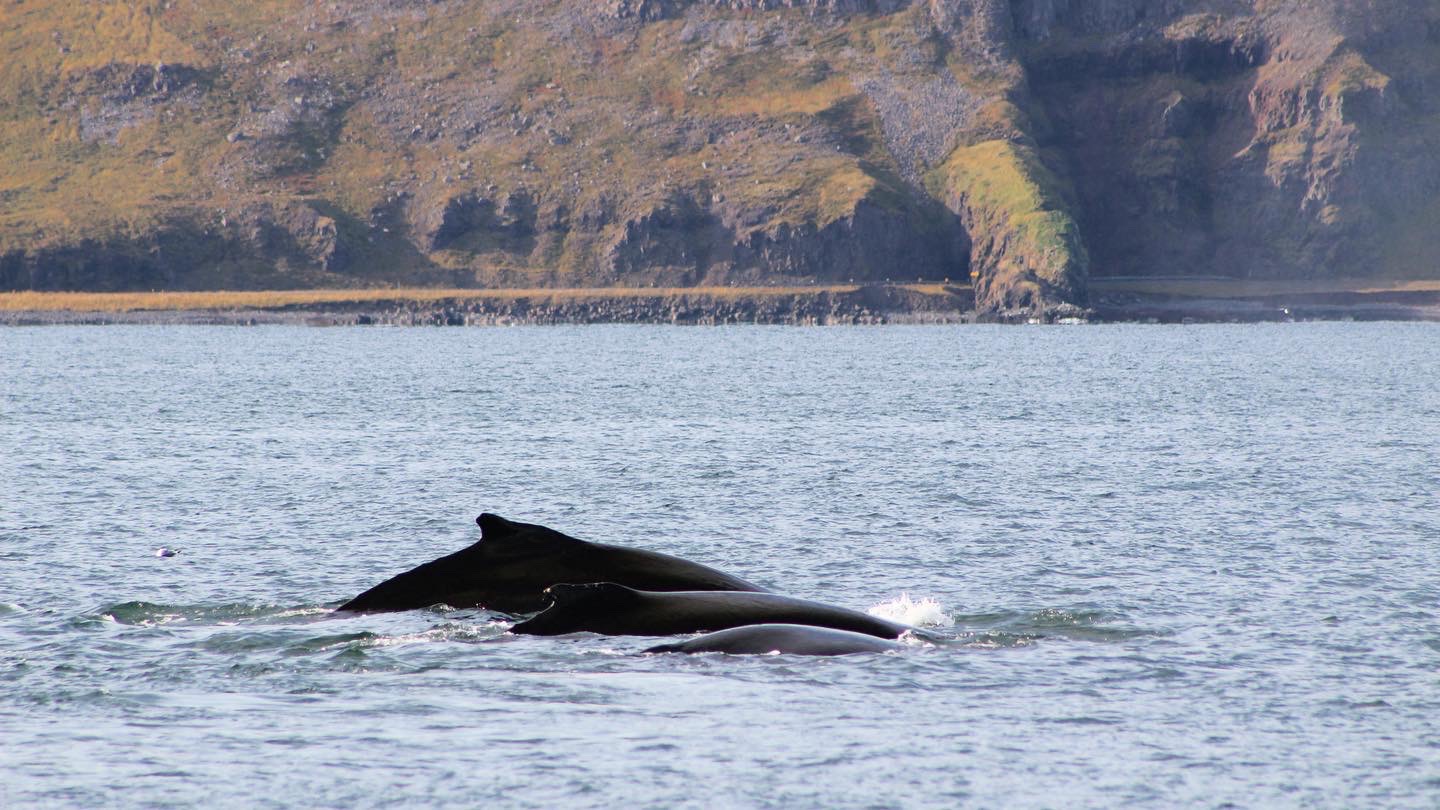Two UW students receive grant to survey humpback whales
Two UW students, Benedek Regoczi and Laura Lyall, have received a grant from Rannís, the student innovation fund, for a total of 2.040.000 ISK. Brack Hale, program director of the Coastal Marine Management master’s program applied for the grant on behalf of the University Centre of the Westfjords for the project “Monitoring whales to inform responsible shipping.” The project will be in collaboration with Borea, Sjóferðir, Húsavík, Vestmannaeyjar, and Whale Wise.
In the project, it is stated that Ísafjarðardjúp is a potentially important coastal feeding ground for Icelandic humpback whales, but there is limited information about local whale occurrence. Meanwhile, human activity is locally very high, particularly vessel traffic around Ísafjörður, and is predicted to increase, with potential implications for whale behaviour and health. The project proposes a novel collaborative network to study whale occurrence and distribution to inform the responsible use of Ísafjarðardjúp. The project offers summer projects for two students, who will work with whale-watching companies, a conservation non-profit, and academic partners to collect and analyse sightings data. Laura will assess the importance of the area for whales, while Ben will characterise local whale distribution to determine spatial overlap with human activity. The students will also work together to craft recommendations for responsible shipping in Ísafjarðardjúp.
Benedek says that they will start the data collection most likely at the beginning of June, or the end of May. Benedek's research is about mapping the distribution of humpback whales and spatial overlap with anthropogenic activity in Ísafjarðardjúp. Humpback whales have both environmental and economic importance in Iceland, due to their role in the ecosystem and the growing whale-watching industry. However, as anthropogenic activities have been increasing over time, they simultaneously pose risks to these marine mammals, such as the increased potential for ship strikes. Therefore, Benedek will research the spatial and temporal distribution of humpback whale sightings, which can potentially be used for the development of management strategies to minimize the potential impact anthropogenic activities could have on humpback whales.
In order to obtain the required data, Benedek will conduct shipboard and land-based surveys from June to October, in collaboration with local whale-watching companies, universities, and Whale Wise, a marine mammal research charity, as well as fellow master's student Laura Lyall. The gathered data will potentially provide valuable insights for marine conservation efforts and the management of shipping routes.

Laura says that her research is going to examine the importance of Ísafjarðardjúp for foraging humpback whales, as there has been limited scientific study to date on that topic but according to anecdotal evidence their numbers may be increasing in the fjord during the feeding season.
We wish Benedek and Laura good luck with the project and look forward to the results.
